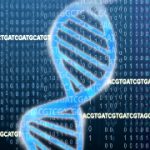Mitochondrial Donation Treatment
Within the realm of in vitro fertilization (IVF), a groundbreaking technique known as mitochondrial donation treatment (MDT) is causing a stir. This innovative procedure aims to prevent the transmission of incurable diseases from mothers to their offspring. By utilizing healthy tissue from female donors’ eggs, MDT generates IVF embryos that are free from the harmful mutations carried by the mothers, thereby safeguarding the health of future generations.
The Term “Three-Parent Babies”
The process of incorporating genetic material from three individuals has popularly become known as “three-parent babies.” However, it is important to emphasize that over 99.8% of the babies’ DNA still originates from their biological mother and father. The term “three-parent babies” simplifies the concept, highlighting the contribution of an additional donor in the IVF procedure.
Newcastle Fertility Centre
The pioneering efforts in developing MDT took place at the Newcastle Fertility Centre in the United Kingdom. The dedicated team of doctors and researchers at this fertility center spearheaded the development and refinement of this revolutionary technique. Their primary goal was to provide a solution for women with mutated mitochondria, allowing them to conceive children without the risk of transmitting genetic disorders.
United States: The Birthplace of the First MDT Baby
Prior to the United Kingdom’s achievement in MDT, the first baby born using this technique actually came into the world in the United States. In 2016, a Jordanian family undergoing treatment in the US made history by welcoming a baby born with genetic material from three individuals. This significant accomplishment demonstrated the potential of MDT in offering newfound hope to families affected by mitochondrial disorders.
Mitochondrial Replacement Therapy (MRT): An Alternate Term for MDT
Another name commonly used for mitochondrial donation treatment is mitochondrial replacement therapy (MRT). Both terms refer to the same innovative technique that involves replacing or supplementing mitochondrial DNA to prevent the transmission of mitochondrial disorders.
Mitochondria: The Vital “Batteries” Impacted by Mutations
Mitochondria, often referred to as the “batteries” of cells, play a pivotal role in energy production. Mutations in these mitochondria can have far-reaching effects, impacting all the children born to a woman. MDT offers a solution to prevent the transmission of these mutations and the associated disorders.
Month: Current Affairs - May, 2023
Category: Science & Technology Current Affairs


